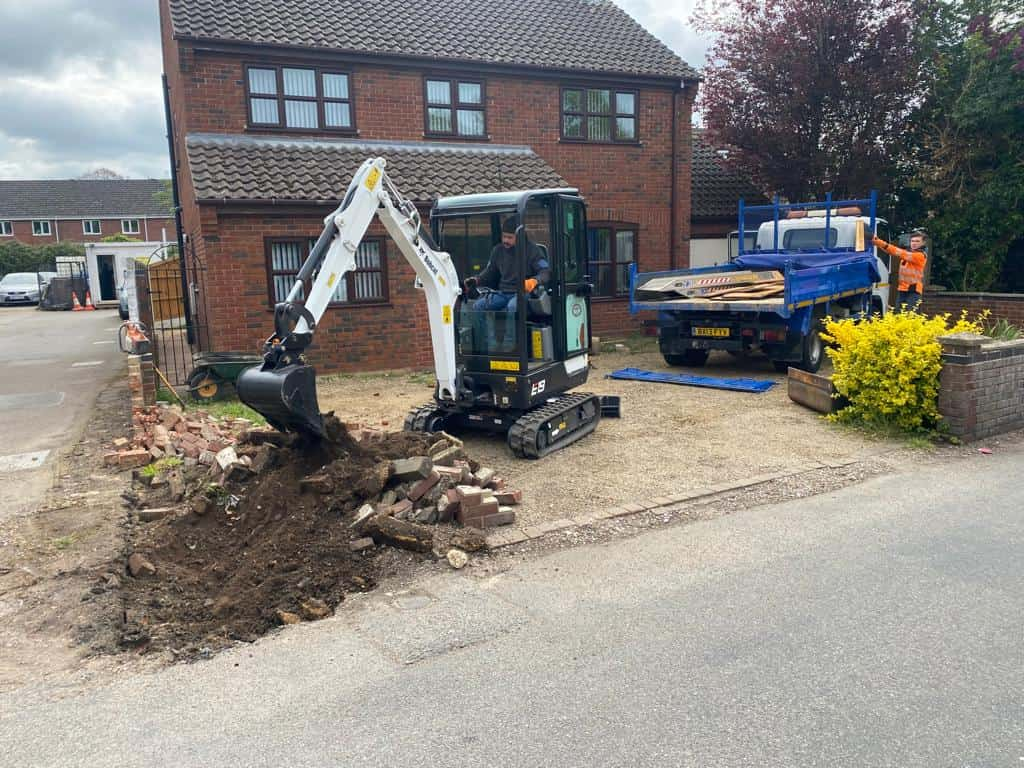Is Resin a Safe Option for Elderly or Mobility-Impaired Residents?
Introduction
When choosing a driveway or path surface for a property occupied by elderly individuals or those with mobility challenges, safety and practicality are critical considerations. Slip resistance, smooth transitions, and ease of movement can significantly impact the day-to-day comfort and security of residents. In recent years, resin-bound surfacing has grown in popularity across the UK — praised for its attractive finish and durability. But is it truly a safe and suitable option for those with limited mobility?
At Halesworth Driveway Contractors, we regularly install resin-bound driveways and pathways across Suffolk, often for households with specific accessibility needs. In this post, we’ll explore whether resin is a reliable and sensible solution for elderly residents and mobility-impaired users — and highlight the features that make it an increasingly preferred surface.
Why Surface Safety Matters
For older adults or people using mobility aids, a driveway or path that’s uneven, loose, or slippery can present a daily hazard. Whether it’s a trip risk from unstable gravel, pooling water on concrete, or a slick surface when wet, poor surfacing puts vulnerable residents at unnecessary risk.
Mobility-related concerns can include:
- Difficulty navigating uneven or bumpy surfaces
- Wheelchairs or walking aids catching on loose material
- Higher risk of slipping on wet or mossy ground
- Standing water creating hazards or degrading the surface
This is where resin-bound surfacing shows significant advantages — particularly when professionally installed with the right finish.
Resin-Bound vs Other Surface Types
Unlike gravel or block paving, resin-bound systems are smooth, seamless, and permeable. This makes them especially suitable for those with limited mobility or balance issues.
Loose gravel can shift underfoot and make walking or wheeling difficult. Block paving, while visually appealing, can become uneven over time due to ground movement or poor installation. Concrete slabs may crack, retain water, and become slippery when wet. In contrast, resin-bound surfacing offers a stable, non-slip finish that requires far less upkeep and provides a more consistent walking surface.
Key Safety Features of Resin-Bound Driveways
Smooth and Level Surface
Resin-bound surfacing is laid as a single, continuous layer, resulting in a completely smooth finish with no raised edges or shifting parts. This ensures:
- Safer passage for wheelchairs and mobility scooters
- No loose stones or unstable sections
- Easier navigation for walking aids like frames and sticks
The even surface also reduces the likelihood of tripping — a common concern for elderly homeowners.
Excellent Slip Resistance
One of the major concerns with any driveway or path is how it performs in wet or icy conditions. Resin-bound surfaces can be made with a textured finish to improve grip underfoot, significantly reducing the risk of slipping.
Additional anti-slip additives can be used in areas of higher risk, such as steps or slopes, further improving safety during wet weather or colder months.
Permeable and Puddle-Free
Traditional driveways can often lead to standing water or puddles after heavy rain. For elderly residents, this increases the risk of slips and water ingress into the property. Resin-bound systems are fully permeable, meaning water drains through the surface naturally and quickly.
Benefits of this include:
- No standing water after rainfall
- Reduced ice patches in winter
- Drier, safer walkways year-round
This drainage capability makes resin especially practical in areas like Halesworth, where weather conditions can vary significantly throughout the year.
Design Flexibility for Accessibility
Another benefit of resin is the ability to customise the layout and design to suit accessibility requirements. Whether it’s gentle sloping to accommodate ramps or creating clear visual contrasts between walking areas and edges, resin-bound installations offer flexibility that other materials don’t easily match.
Accessibility-focused design considerations may include:
- Creating a smooth ramp entry to the front door
- Avoiding abrupt level changes
- Including textured strips for guidance
- Choosing lighter colours to aid visibility for those with sight issues
At Halesworth Driveway Contractors, we work with homeowners to ensure every aspect of the installation is suited to the needs of the residents.
Low Maintenance for Long-Term Ease
Resin-bound driveways require very little upkeep — a huge advantage for elderly homeowners who may not be able to perform regular maintenance. The smooth surface resists weed growth, does not need regular sweeping of loose material, and retains its colour and structure for many years with minimal effort.
Maintenance benefits include:
- No weeding or repointing needed
- Simple occasional power wash to clean
- No shifting blocks or loose aggregates to manage
This reliability provides peace of mind, knowing that the surface will stay safe and attractive over time without demanding regular attention.
Conclusion
When it comes to choosing a safe, practical, and attractive surface for elderly or mobility-impaired residents, resin-bound surfacing ticks all the right boxes. From excellent slip resistance and smooth access to minimal maintenance and custom design, it offers a thoughtful and forward-looking solution for homeowners in Halesworth and throughout Suffolk.
At Halesworth Driveway Contractors, we understand the importance of safety and independence. Our professional resin installations are tailored not just to improve kerb appeal but to enhance the daily lives of the people who use them. If you’re considering a driveway or path upgrade for yourself or a loved one with mobility needs, get in touch with our team for expert guidance and a surface that truly makes a difference.
Call us on: 01508 505 225
Click here to find out more about Halesworth Driveway Contractors
Click here to complete our contact form and see how we can help with your driveways.

